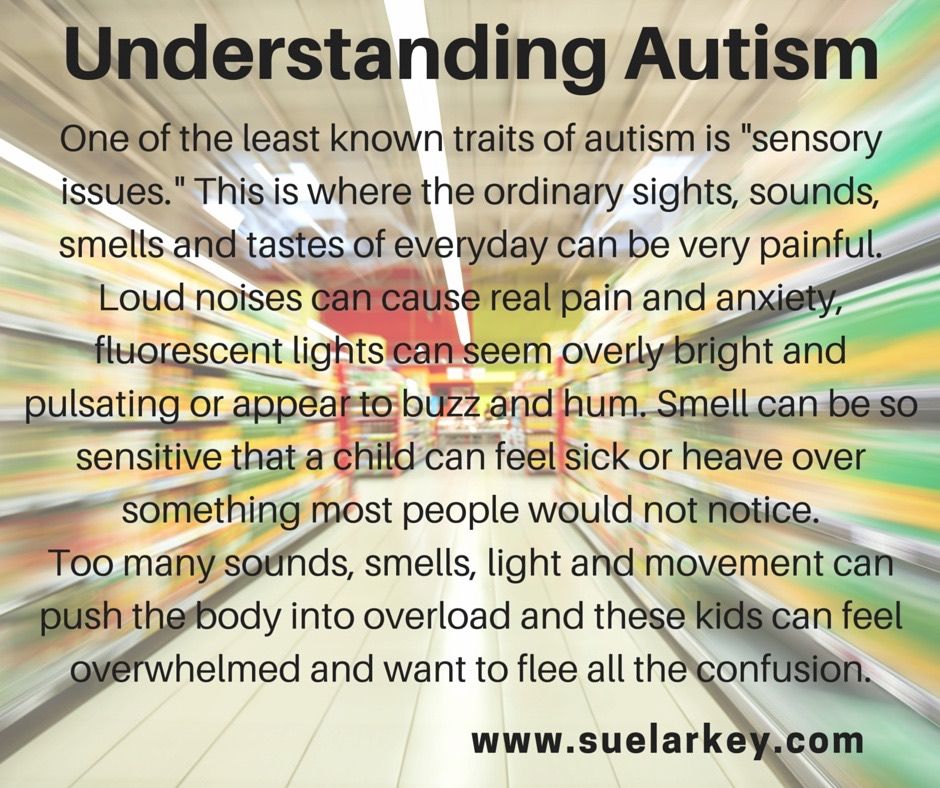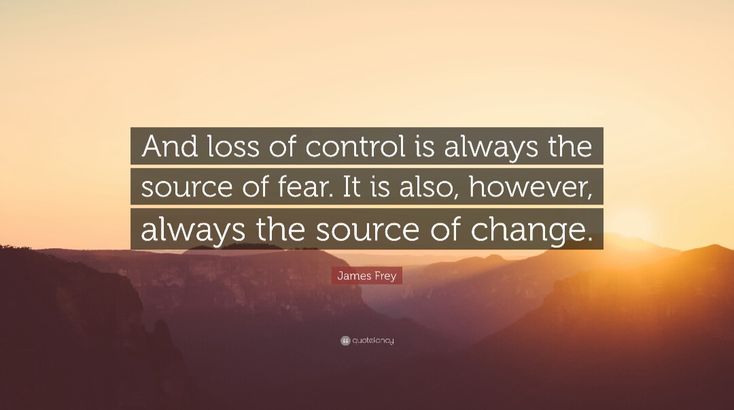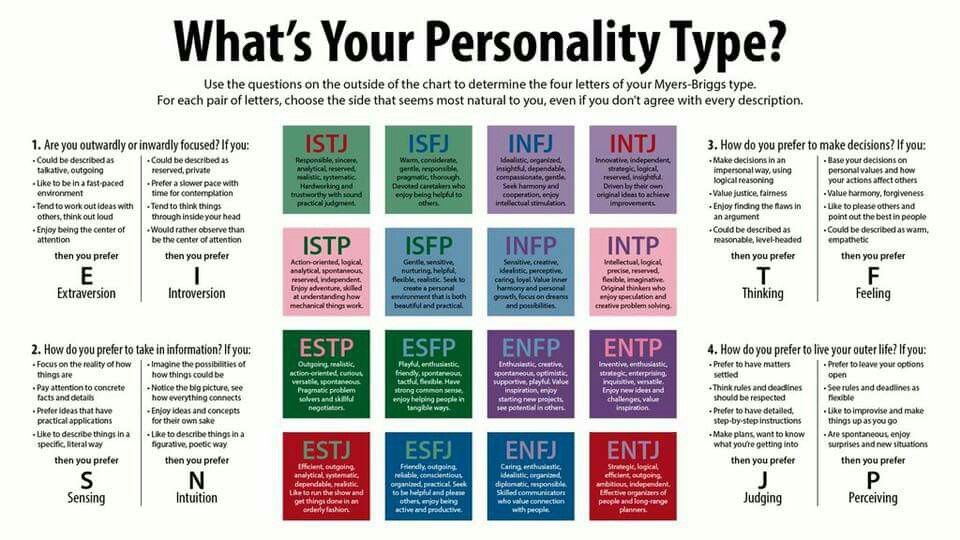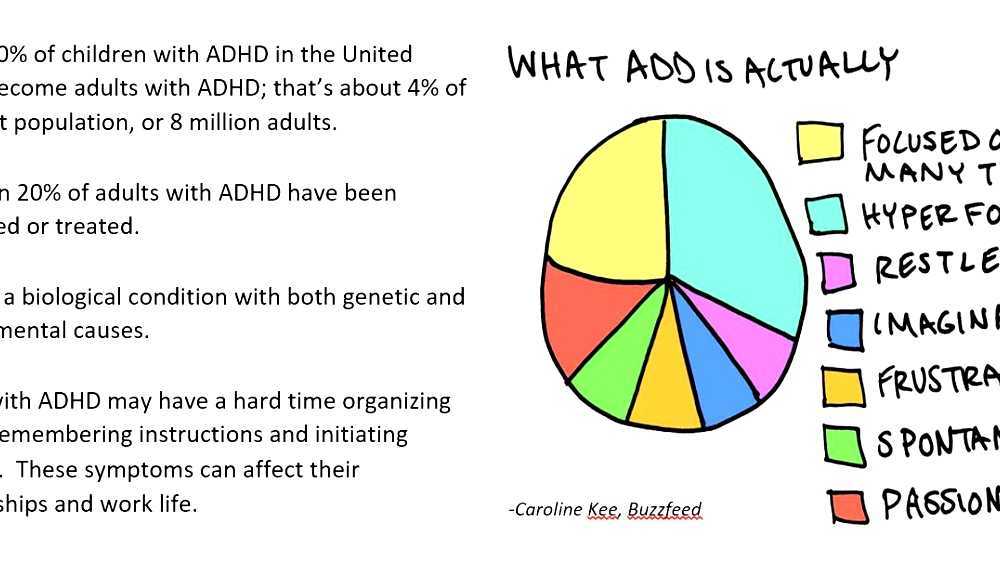How to warn someone about a narcissist
How to Expose a Narcissist to Others
Once your relationship with a narcissist comes to an end, you may want to expose them to others. There could be many reasons why you would want to do that:
- You may want to warn others because they may be unknowingly serving as the narcissist’s supply.
- You may want revenge.
- You may want to prove to others that you aren’t a crazy person.
- You may need proof of abuse to use against the narcissist in court.
- You may want to expose a narcissist in your workplace because they bully others and take credit for their work.
Exposing a covert narcissist isn’t an easy task because they don’t just gaslight their primary victims; they gaslight the public too.
Once you fought your way to freedom, it may be very frustrating to find out that your common friends, some family members, and even colleagues are on the narcissist’s side no matter what.
Narcissists are great actors and know how to silence any stories that may compromise their carefully built image.
The first question you should be asking yourself is: Is it worth it? In most cases, trying to expose a narcissist to others isn’t a good idea for several reasons:
- Your energy is better spent working on rebuilding your life and recovering from the abuse you had to endure.
- Some people may not believe you, which will bring you a lot of additional emotional suffering.
- Even if they do believe you, many narcissists are good at faking remorse and can be easily forgiven by others.
- Attempting to expose a narcissist is likely to worsen the situation because he or she will want to make sure your reputation is ruined.
- Even if you succeed, the narcissist will want to take revenge. Whether you had a personal relationship or a professional one, they could find many opportunities for retribution.
Some blogs teach how to provoke a narcissist in public by saying something that is likely to trigger narcissistic rage, such as questioning their talent or skills or openly criticizing them.
However, this approach goes against the victim’s best interests and can be very dangerous.
Even if it does force the narcissist to expose themselves, the public will likely judge both — the narcissist and the victim.
By ruining the narcissist’s reputation, the victim might destroy their own image as well.
People may alienate, shame, and blame you for speaking out and “being weird”.
Even if you win that one battle and have the upper hand just this one time, you will have to deal with potentially severe consequences — a lifelong emotional struggle with someone who is better at this game than you.
The narcissist will never accept their loss or feel remorse or apologize.
What makes you the way you are? Take THIS TEST to discover your personality type.
Instead of building your new narcissist-free life, you will continue wrestling with the abuser, which can be emotionally, physically, and sometimes financially exhausting.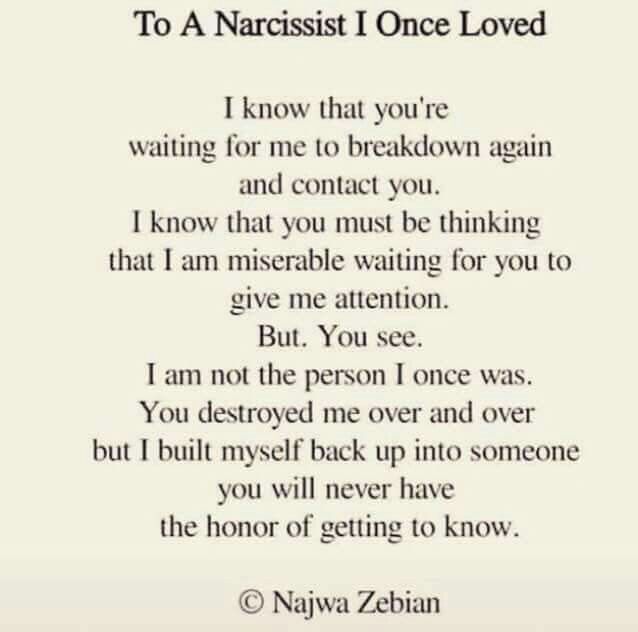
The question is: Do you really want that?
The best revenge is to move on and live your own life.
The best revenge is not to give the narcissist any attention, not even negative attention.
By trying to expose them or ruin them, you will be stimulating them even more.
They will become even more abusive and manipulative, which goes against your goals.
Whenever we decide to seek revenge, we get stuck in the situation longer than we otherwise would.
Because we continuously ruminate about the issue, we end up feeling even worse.
Focusing on your own recovery, seeking support, working with a therapist, meeting new people is a much better way to release hurt and emotional pain.
In the narcissist’s mind, the worst thing you can do to them is to ignore them.
Breaking free and ignoring them is the ultimate revenge.
The only time you should be worried about how to expose a narcissist to others is when you are facing the narcissist in court, in which case you should be documenting abusive incidents.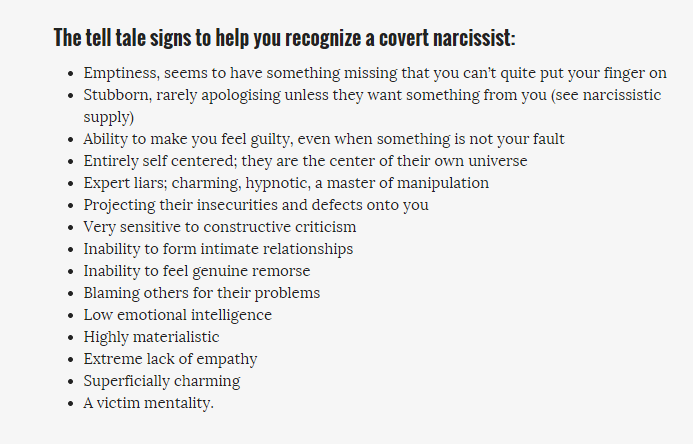
It could be
- text messages,
- calls,
- voicemails,
- emails,
- in-person conversations,
- medical reports of injuries,
- pictures of injuries from the abuse,
- broken objects,
- any other relevant information.
The narcissist mustn’t know about the documentation. Keep it safe at a friend’s or family member’s house or your workplace.
Depending on where you live, laws may differ about what type of evidence is permissible in court.
It’s wise to talk to a legal advocate or an attorney to prepare your case correctly and stay safe.
Recap
- Exposing a narcissist can be counterproductive and dangerous.
- Do not provoke the narcissist in public — you will only stimulate their ego!
- The best revenge is to ignore the narcissist and live a successful and happy life without them.
- If you are going to face the narcissist in court, you need to collect evidence of abuse without the narcissist knowing.
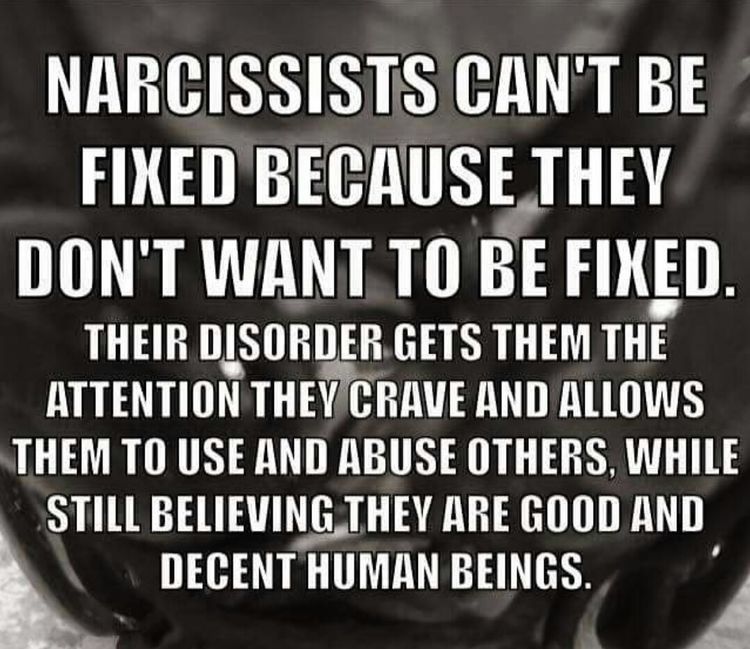
- Consult an attorney or a legal advocate to find out what type of evidence is permissible in court.
Should You Warn People About The Narcissist?
It’s completely understandable why you would want to warn people about the narcissist. Because narcissists seem to keep getting away with it.
Innocent people get torn apart and hurt.
However, myself and so many people, have experienced that trying to warn other people just didn’t work.
It only made things even more traumatizing and devastating for us, and turned people, including family and friends and even authorities, against us.
Video Transcript
This is a very important question. So many people ask, “Should I warn this person about the narcissist?”
Those of us who have tried in the past have suffered some very poor results when doing this.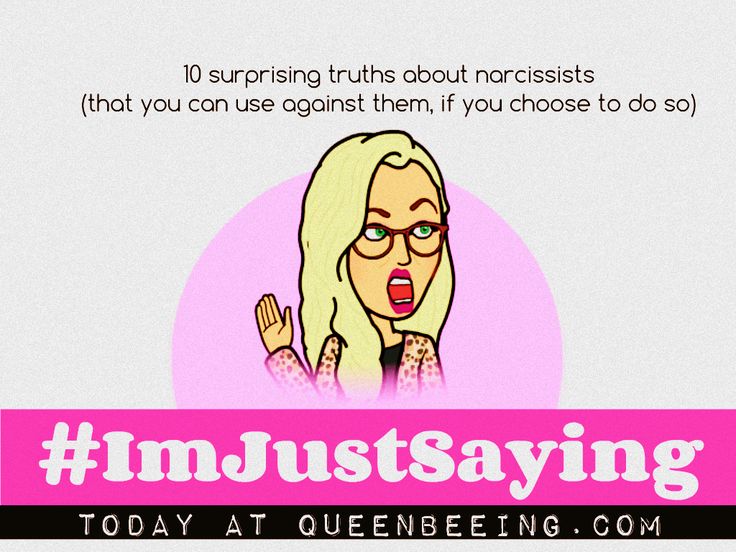 I know that many of you would like to help other people so they do not go through what you have, especially people who you love.
I know that many of you would like to help other people so they do not go through what you have, especially people who you love.
However, this usually doesn’t turn out well.
In today’s Thriver TV episode, we investigate why warning people usually doesn’t work, and what you CAN do to help people leave and recover from narcissists.
Okay, so before we get started, thank you for subscribing to my channel and supporting the Thriver mission, which is the raising of awareness that it is possible to heal for real from narcissistic abuse, in a much shorter time frame than with contemporary processes.
Okay now let’s get started on today’s episode.
When You Are Traumatised Don’t Act
Most of us, when trying to warn somebody about the narcissist, were still very deeply entrenched in the trauma of what this person had done to us.
Like Bill. His wife Denise left him for Jeff, one of her work contacts. Denise had always been the “street angel, home devil”.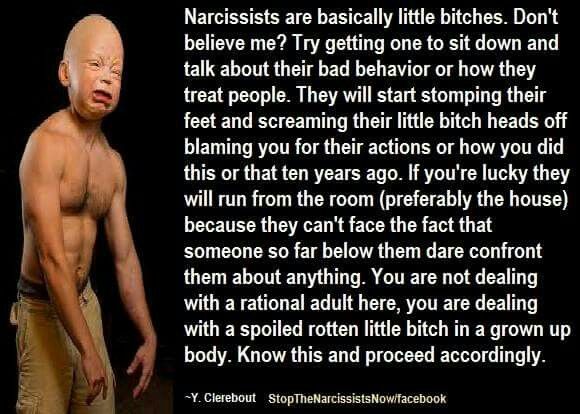 This person had no idea what she was like behind closed doors.
This person had no idea what she was like behind closed doors.
Of course, Bill had been smeared to Jeff and Jeff believed Denise’s version of things. Bill, traumatised beyond measure, tried to get Jeff to understand what had happened and what Denise was really like – but it only made Bill look even more guilty of what Denise had portrayed him as.
I want you to know with all my heart that there is a very profound and absolute Quantum Law, and it is this: if you try to take any action from a place of being traumatised, the results of your actions are only ever going to bring you more trauma.
This Law of so within, so without is as absolute as gravity.
Think back through your life, and you will know that what I’m saying is completely and utterly true. Your real-life results are the proof.
This applies when we try to warn the new supply, our children, family and friends and even authorities.
This happened to me horrifically. The harder I tried to warn people and prove my own innocence the more his family, my family, my friends, colleagues and all legal and police associations completely believed that I was the problem.
Even my son believed him.
Of course, we want these people to know the truth. We want to stop the horrific smearing that is happening to us. We want to warn those who are being bewitched and mesmerized by the narcissist.
However, if you try to achieve this while you are still suffering from intense trauma, forget it. It only makes matters worse for you.
In fact, the narcissist will use your trauma against you, as the bullets to shoot you with.
Let Go of Your Dismay
Marie, like most of us before Thriver Healing, was distraught by how many people believed the narcissist and thought badly of her.
Her family was even still socially inviting the narcissist to functions!
The trauma was so horrific for Marie that she thought she was going to die.
She felt intense resentment and betrayal toward these people.
I promise you, even though you may feel justified in feeling this, you will be stuck in Wrong Town. There is no healing or resurrection of your life in this orientation.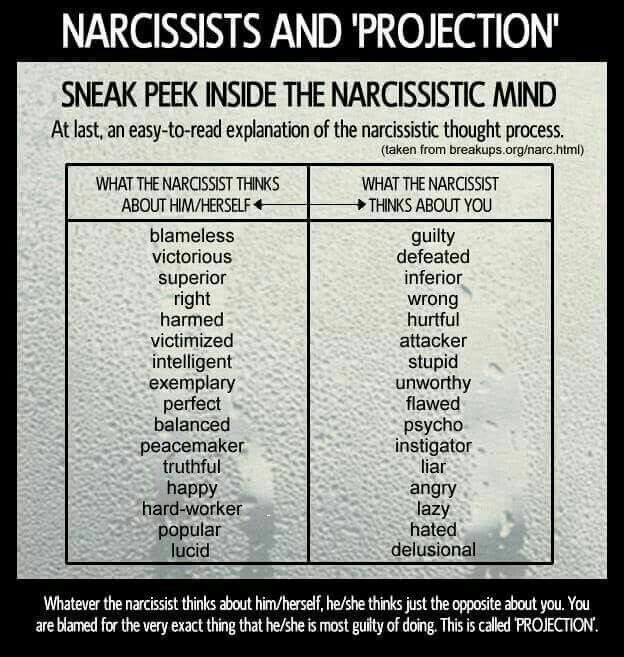
It can be helpful to understand that narcissists are very skilled at appearing calm, cool and measured. In stark contrast, you are likely to be completely dishevelled and distraught and feel out of control.
Who appears to be more believable?
Narcissists are able to cross all boundaries and borders by lying about anything and everything that will suit their agenda. Normal adults have been conditioned to believe that when somebody looks you in the eyes and appears to be credible, that they are telling you the truth.
I remember some years ago a very dear friend of mine John was married to Grace. I started to discover that Grace was a deeply troubled woman and had quite a few narcissistic traits.
Yet, she told me stories about John that were so compelling that I started to believe them. This was even after I had become a global narcissistic abuse recovery expert!
One morning, whilst staying at their home, I overheard a conversation that Grace had with John. She later relayed a completely different version to me. It was then that I realised she had been lying to me all along, and I broke off all contact with her.
She later relayed a completely different version to me. It was then that I realised she had been lying to me all along, and I broke off all contact with her.
Why had I believed her instead of John? It was because I’m a normal human being who can still be susceptible to someone’s narcissistic Academy Award performance.
Don’t blame these people, it can happen to anybody!
The People Involved Are on a Soul Journey
Those of us who’ve been narcissistically abused and have actualised our Thriver Recovery understand a very deep truth.
This … the narcissist in our life smashed our unhealed wounds and insecurities up to the surface so that we could let go of them and turn inwards to self-partner to heal these parts of ourselves.
There, in a nutshell, within the healing of these wounds, is the gold of our personal evolution.
If we hadn’t done this, we would still be traumatised and diminished, living in mere survival stuck with all the abuse symptoms of ongoing PTSD, agoraphobia, diminished trust in self, life and others and all the other nasties that go with failed recoveries.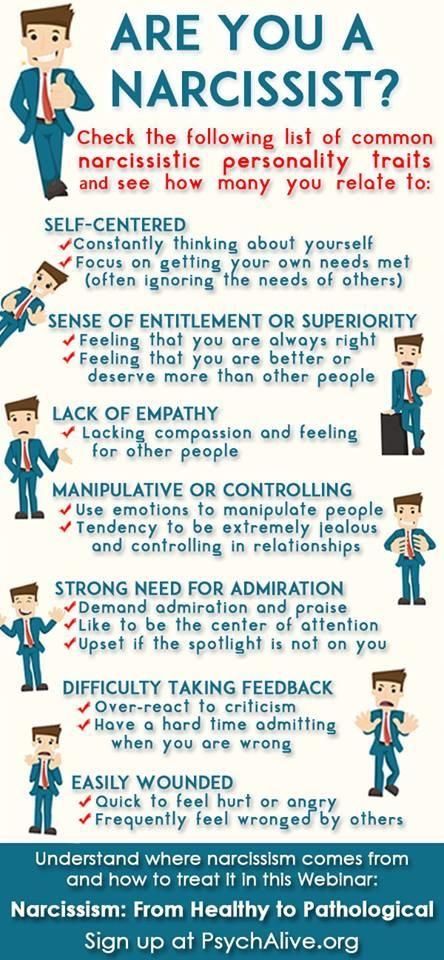
But, because we went through a very real healing journey, we are incredibly grateful to be not just released from narcissistic abuse, but also from all of our previous insecurities, limitations, anxieties and depression that were holding us back as a result of not yet being fully self-partnered.
Narcissistic abuse generated the grist that forced us to finally turn inside to do this essential inner work.
As such, this brings a completely different perspective regarding wanting to warn others. You know the truth now, that everyone who is hooked into a narcissist is also going through an incredible soul journey themselves.
They now have the opportunity to also heal and evolve those parts of themselves that are susceptible and being targeted and smashed up to the surface.
This I know with every ounce of my Being, if people are saved prematurely from this journey with a narcissist, they still have to meet up with another abuser in the future who will deliver the same agonising trauma.
Why? Because this is a soul contract. This is what this person’s soul and true Inner Being wants more than anything – for this person to give up trying to seek outer false sources to take away the pain, and come home to being self-partnered and healed within themself.
What soul wouldn’t want that?
There are no mistakes here.
How do you feel about what I just shared with you? I would love you to pause this video and write to me how this feels for you below.
The Most Powerful Thing You Can do to Help
I know that the most powerful thing that I can ever do regarding helping somebody who is with a narcissist, is to heal myself regarding how I “see” them.
If I see this person as a powerless victim, then I add to the Energetic Field, where we are all interconnected, regarding them being a powerless and helpless victim.
If I heal within myself how I see this person and reach the true knowing that they are an evolving being awakening to their own empowered and wholeness evolution, then I add to THAT reality occurring.
It is because of understanding all of this powerfully that my greatest mission is to hold the space for all of us, to awaken into the glory of this experience and exactly what our soul intends for us.
When I do this, for those whom I love and care about, I’ve experienced the sheer miracle, time and time again, of people rising up to claim this higher level of vibration.
Those of you who are NARP members I cannot recommend enough, for the people in your life who you love to do the healing on yourself regarding how you feel about it.
Heal that and then see the incredible results unfold.
So, to wrap up this episode, my total recommendation is not to try to warn people.
Rather, heal you and be the example who will change the world.
At the moment healing our world is very important because it is deeply in crisis. There is a greater need now more than ever for us to claim our personal solidness, peace and power for ourselves personally, and for those we love and our world.
Please know that my Quanta Freedom Healing programs are all home-based and backed with an incredible global support system that you have access to 24/7. This means that you don’t need to travel anywhere and that you can stay in the peace and sanctity of your own home while you deeply heal.
To find out more, please click this link.
And as always, I look forward to answering your comments and questions below.
Join My FREE 16-Day Recovery Course to Begin
Healing from Narcissistic Abuse
Narcissists: who they are, signs of narcissism, rules of conduct
The article was checked and commented by clinical psychologist and scientific researcher Christina Andreyuk.
- Who is
- How to recognize
- Men and women
- Types
- Treatment
- How to communicate
- How to leave
Who is a narcissist?
Advertising on RBC www.adv.rbc.ru
Narcissism is a feature of the psyche in which a person perceives himself as a unique individual, considers himself better than others, which is not always true. In fact, these traits are present in the character of many people. In a healthy personality, they result in ambition and a desire to please. But under a certain scenario, laid down in childhood, such behavior can turn into a pathology, which is often accompanied by other diagnoses, such as bipolar disorder and depression.
In fact, these traits are present in the character of many people. In a healthy personality, they result in ambition and a desire to please. But under a certain scenario, laid down in childhood, such behavior can turn into a pathology, which is often accompanied by other diagnoses, such as bipolar disorder and depression.
Contrary to popular belief, people with narcissistic personality disorder do not like themselves very much. Rather, they admire their grandiose projection, which allows them to close gaps in their own self-esteem. Such protection allows narcissists to avoid deep feelings and self-doubt. A person with this disorder does not tolerate minimal criticism, he perceives remarks as a personal insult and is able to throw a tantrum if someone refuses to admire him. You can check how narcissistic traits are characteristic of you or your partner using the NPI questionnaire [1]. The more positive answers a person gives to statements from the list compiled by American psychologists and researchers Robert Raskin and Howard Terry, the more narcissistic features appear in him.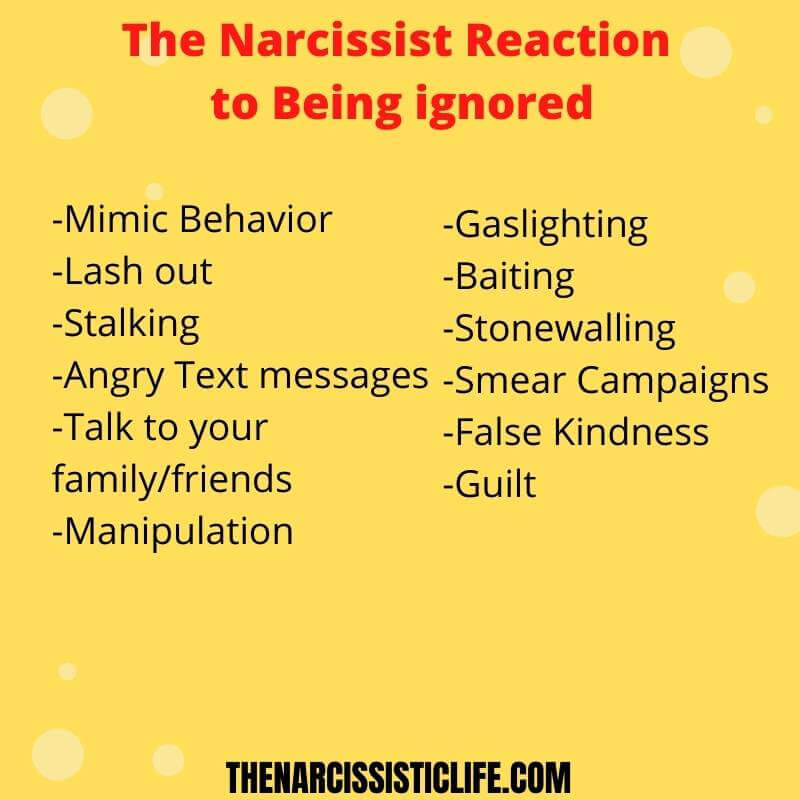 Meeting people with a true personality disorder is not easy. According to various sources, their number in society varies from 1 to 6%.
Meeting people with a true personality disorder is not easy. According to various sources, their number in society varies from 1 to 6%.
How to recognize a narcissist?
According to the American psychiatrists' handbook "Diagnostical and Statistical Manual of Mental Disorders" [2], there are nine signs of narcissistic personality disorder. If at least five of these are present, a doctor may suspect a disorder. Usually such a person:
- Has an inflated sense of self-importance. He often exaggerates his achievements and talents. Expects people to admire his actions, even if they were minor. If the narcissist organized the cleaning of the yard, then at least the district newspaper should write about it.
- Preoccupied with fantasies of unlimited success, power, beauty, or ideal love. To each new partner, the narcissist can say that he is the love of his life or wait for him to fulfill his fantasies. The beginning of such a relationship is a magical, but short period.
 In work, the narcissist, according to him, is a genius. If he has not been able to achieve great results, he is simply sure that success lies ahead of him, even if it is time for him to retire.
In work, the narcissist, according to him, is a genius. If he has not been able to achieve great results, he is simply sure that success lies ahead of him, even if it is time for him to retire. - Believes that he is not like others and has few equals. Therefore, the environment must match. The narcissist chooses “special” people as friends and partners, for example, with high social status or model appearance. Thus, he seems to reflect himself through them, because his problems are unique and can only be understood by special people. Narcissists like to be associated with big brands, whether it be in their work projects or clothing choices.
- Requires constant attention, recognition and admiration, even if you just took out the trash or cooked dinner.
- Absolutely sure that everyone owes him. Expectations for other people are usually very high. Close people are obliged to fulfill the requests of the narcissist at the first call.
- Uses other people to achieve his own goals.
 For him, it goes without saying. The narcissist is not used to sincerely thanking for services and does it only within the framework of the accepted ethical norm.
For him, it goes without saying. The narcissist is not used to sincerely thanking for services and does it only within the framework of the accepted ethical norm. - It is difficult for him to experience empathy. Such people are not able to draw a parallel between their feelings and the feelings of others. Therefore, the narcissist does not even think about when he hurts someone. Very often, this behavior is mistaken for abuse by partners of narcissists. In fact, he may be concerned with how to hide the shame of his failure and not lose his greatness.
- Often jealous of others and believes that others envy him. In the latter case, it is by this circumstance that the narcissist explains the criticism of others in his address.
- Arrogant towards other people. Such a person absolutely sincerely believes that he is better than others, and other people's shortcomings are an excellent reason to assert himself.
To decide to end a relationship with a narcissist, write down the reasons for breaking up and keep the list with you
© Unsplash
Men and women are narcissists disorder in one form or another, men are more likely to be affected by this disorder than women.
 The data were collected over a period of 30 years, and the percentage ratio between the sexes did not change much during this time [3].
The data were collected over a period of 30 years, and the percentage ratio between the sexes did not change much during this time [3]. In doing so, the researchers noted two important points. First, male narcissists were more likely than females to exploit others and believe they were entitled to certain privileges. Secondly, men were more likely to seek power. Scientists explain this by the fact that until recently, leadership qualities did not meet the criteria for femininity. According to one of the authors of the study, Emily Grijalva, girls are more often criticized for aggressiveness and authoritarianism. Thus, society unconsciously suppressed manifestations of narcissistic behavior [4].
As regards vanity and striving for a bright self-presentation, in this respect there was no significant difference between men and women.
Types of narcissists and how they are formed
There are different approaches to the formation of narcissism, including studies that allow for genetic influence, but this is not a decisive factor in the formation of personality.
In 1914, Sigmund Freud stated that children somehow go through a stage of primary narcissism. He believed that this was an intermediate stage of growing up, but later he singled out other forms of narcissism, to a greater extent associated with mental disorders.
Neuro-Freudian Karen Horney argued that the development of such character traits may be due to the fact that parents in various ways pushed the child to create psychological protection. For example, they could delegate the embodiment of their ambitions or rejected the real manifestations of the child, instilling a sense of inferiority.
The contribution of parental figures to the formation of narcissistic disorder is also noted by psychotherapist and researcher Otto Kernberg. He compares narcissism with a false prop that a person erects in order to receive from others the admiration and confidence that he did not receive from his parents in childhood and cannot give himself in adulthood [5].
In the book of psychologist Elinor Greenberg "Borderline, Narcissistic, and Schizoid Adaptations: the pursuit of Love Admiration and Safety" [6], the author divides narcissists into three types:
- Open, or grandiose.
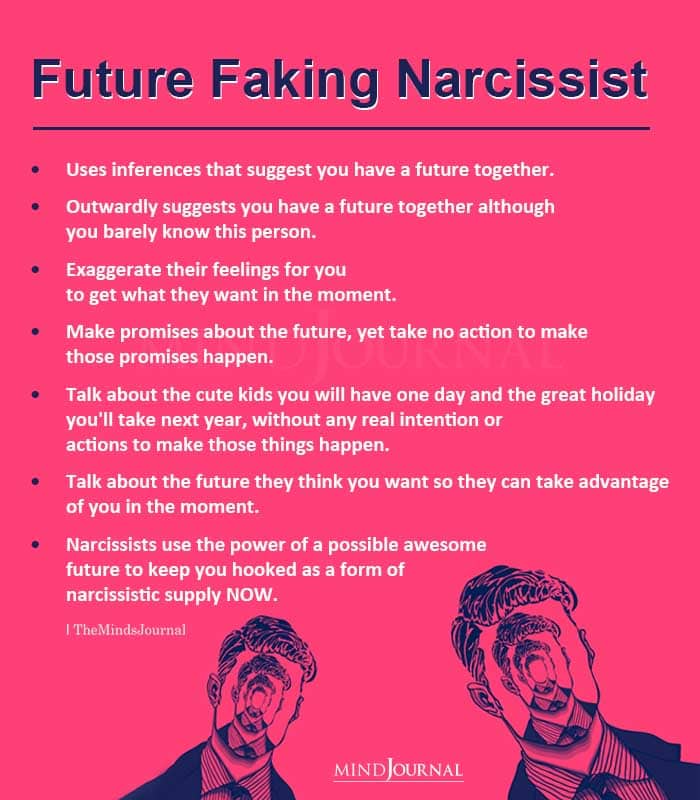 Embodied stereotype. A bright character illustrating this feature of development and behavior. His whole being screams, "Look at me." This childish behavior indicates that a person is stuck at an age when adults pay a lot of attention to the child, praise him excessively, suggest that he is special, forgetting to teach him empathy.
Embodied stereotype. A bright character illustrating this feature of development and behavior. His whole being screams, "Look at me." This childish behavior indicates that a person is stuck at an age when adults pay a lot of attention to the child, praise him excessively, suggest that he is special, forgetting to teach him empathy. - Hidden or depressive. Such people can grow up in families where one of the relatives, including mother or father, was a narcissist. At the same time, there was a high level of competition for love and attention. On the one hand, children copied the behavior model of narcissistic parents, on the other hand, such a child formed protective mechanisms, since an adult narcissist would certainly assert himself at his expense. Growing up, such people may not openly say that they are special. They would rather choose a person, a book, an object and exalt their virtues. Thus, the narcissist puts them on a par with himself. In personal relationships, such people do not like direct conflicts.
 Their weapon is passive aggression. A favorite technique is to promise and not deliver, and then blame the other person for everything. They tend to be insecure, and ambivalent behavior often leads them to depression.
Their weapon is passive aggression. A favorite technique is to promise and not deliver, and then blame the other person for everything. They tend to be insecure, and ambivalent behavior often leads them to depression. - Perverse or toxic. Such people go even further. They love not only admiration, but also submission. Narcissists of this type love to wreak havoc around themselves, the same that reigned in their childhood in relationships with their parents. These narcissists often give their partners an emotional rollercoaster of humiliation and praise. They take pleasure in destroying other people's careers, destroying people morally and spiritually.
Mixed representatives of these types also exist.
Treatment for Narcissism
Most often, narcissists do not even suspect that something is wrong with them, because they do not tend to blame themselves for something. So if such people were seen by a specialist, then the reason for this could be related problems: depression, bipolar disorder, or excessive alcohol consumption. There is no cure for narcissism yet. Psychotherapy has a positive effect on such patients. Properly structured classes can help a person establish relationships with loved ones, learn to withstand criticism, stop despising themselves and others, set realistic goals and achieve them, and not dream of sky-high heights [7].
There is no cure for narcissism yet. Psychotherapy has a positive effect on such patients. Properly structured classes can help a person establish relationships with loved ones, learn to withstand criticism, stop despising themselves and others, set realistic goals and achieve them, and not dream of sky-high heights [7].
Although there is no cure for narcissism yet, psychotherapy has a positive effect
© Thiago Matos / Pexels
How to communicate with a narcissist?
Building an even relationship with a narcissist is not always easy. Some prefer to just cut them off. But what if this is not possible? Let's say that person is a family member or ex-husband/wife with whom you have children in common.
- The first thing psychologists advise is to try to detach yourself emotionally. Ignore toxic statements and manipulations. It is useless to expect sudden changes in behavior from such people. According to research, narcissists do not tend to learn from their own mistakes simply because they are sure they did not make them [8].

- Your personal boundaries are your guard against the actions of a narcissist. “This won’t happen to me anymore”, “I won’t fall for these manipulations” - phrases that will help to avoid an unpleasant conversation or intrusive requests of a narcissist. You can't wait for a response.
- The shortest possible answers, conditionally “yes” and “no”, are your main allies in a dialogue with such a person if he began to resort to manipulation. By minimizing communication, you give him much less reason to hook on to some phrase and launch an attack.
- Stick to the topic of conversation and don't get sidetracked. Perhaps your counterpart will try to knock you out of the saddle with accusations or get personal. In this case, the phrase “We are going off topic” will help bring the discussion back on track.
- Compliments. If you really need to get something out of a narcissist, don't be stingy with praise. Most likely, he will even enjoy fulfilling your request.
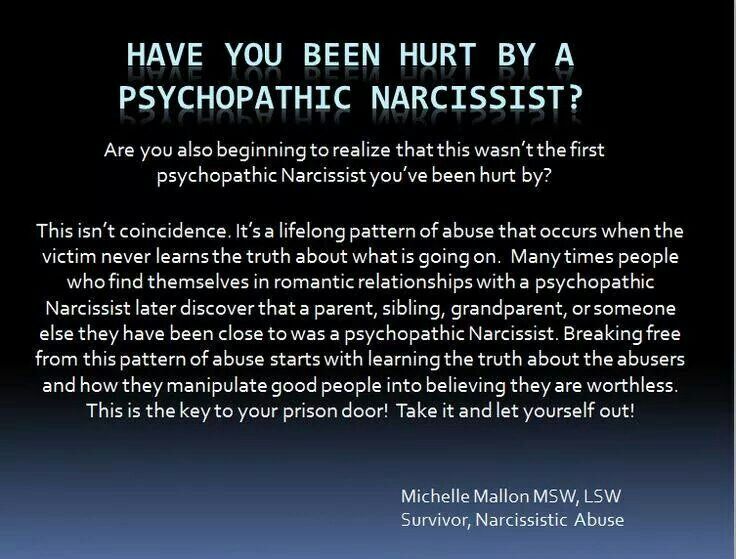 Yes, this is manipulation, but who said that only a narcissist can use this technique?
Yes, this is manipulation, but who said that only a narcissist can use this technique?
How to get away from a narcissist
The end of a relationship is never easy. With a narcissist, breaking up can be doubly difficult. For him, the fact that he was abandoned is an intolerable insult. That is why he will try by hook or by crook to bring the partner back. During this period, he will become sensitive and gentle, will swear eternal love and will do this until his victim loses his vigilance. Often, therefore, relationships with a narcissist develop into a cycle of breaks and reunions. Nevertheless, if you decide to put an end to your communication, psychologists recommend the following:
- Write down the reasons why you want to leave. It's best to keep this list around in case the narcissist decides to drag you back into the relationship by talking about eternal love.
- Give up illusions. It is difficult for such people to change, especially without the help of a specialist.
 Do you have time to wait until he finally learns to show empathy and respect?
Do you have time to wait until he finally learns to show empathy and respect? - Break all contacts. Ask a friend to pick up your belongings from the narcissist. Block this person in all phones and messengers. If you have children in common, at first ask someone close to you to be with you at general meetings.
- Release your feelings. Breaking up, even with a toxic person, is always hard. Give yourself time to get over this situation. Just don't expect the narcissist to suffer in return. Most likely, during this period, he will try to restore his shattered ego and will choose not the most pleasant ways for this: either he will tell everyone what a bad person you are, or seek solace in the arms of someone else.
There are nine signs of narcissism, but five signs can already be suspected of it
© Martino Pietropoli / Unsplash
Kristina Andreyuk, clinical psychologist, researcher. Research interests: mentalization, manipulative behavior, personality disorders
In addition to family relationships, external factors can also enhance narcissistic traits.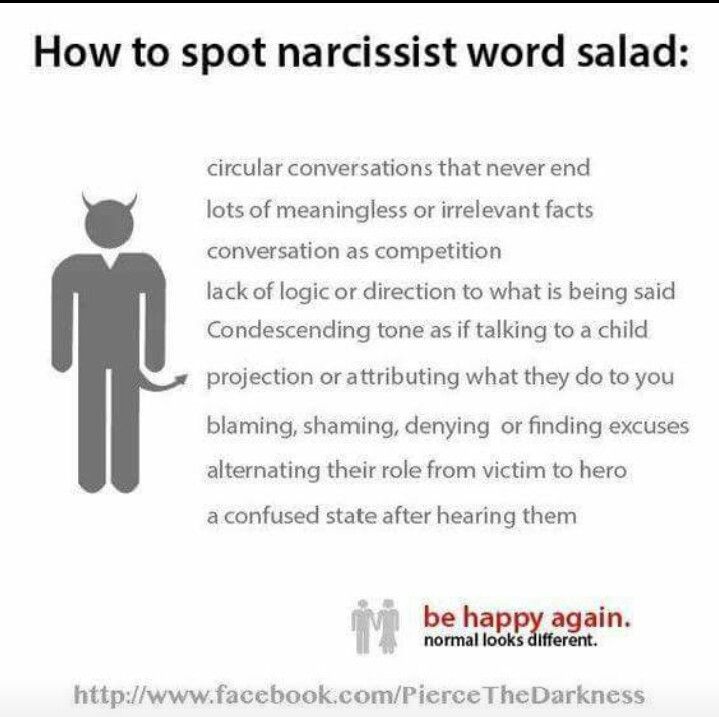 Media and social networks broadcast often unattainable ideals, and self-improvement services are imposed by advertising. All this can affect the psyche.
Media and social networks broadcast often unattainable ideals, and self-improvement services are imposed by advertising. All this can affect the psyche.
In "normal narcissism" people try to please others, to achieve success in work, which helps them to adapt in society. However, in the case of pathology, a person's ideas about themselves are distorted. In this case, the emphasis is on the grandiosity of his figure. He experiences difficulties in forming adequate ideas about other people, abuses manipulations, grossly violates the boundaries of the interlocutor and ignores his comfort. Narcissistic features can manifest themselves in pathological perfectionism, hypochondria, constant attempts to correct their "flaws", including, for example, transforming one's appearance as the most noticeable attribute of self-presentation for others.
On the surface, narcissists give the impression of being rather pleasant people. According to research, many socially active narcissists have charisma, know how to hold an audience, are not afraid to express themselves, appear self-confident, and have high claims regarding academic and professional achievements.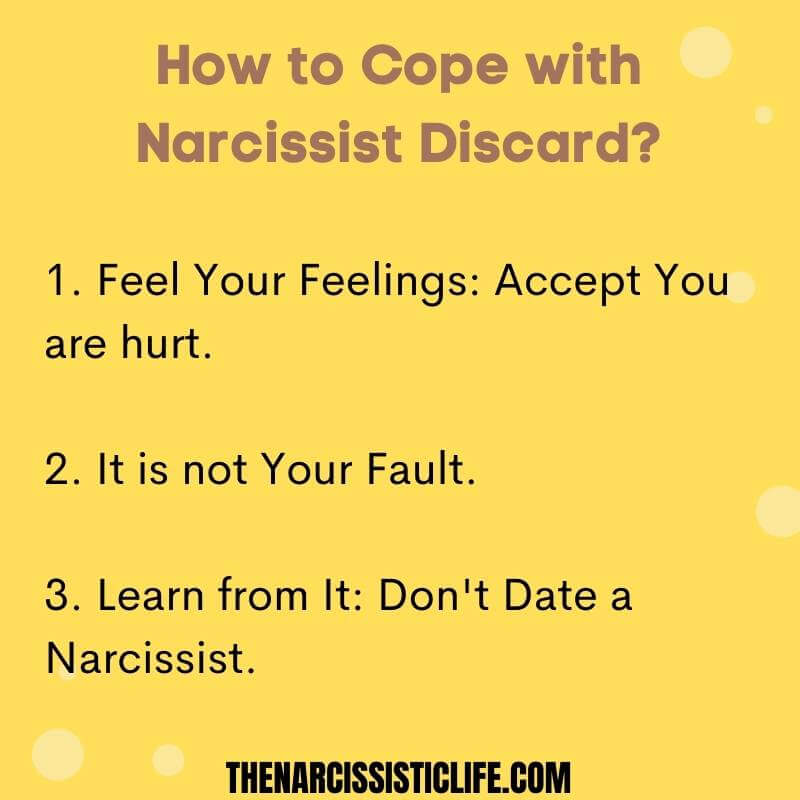 These qualities often show up in job interviews and help narcissists get into leadership positions. However, such bosses may use too subjective criteria when evaluating employees, focusing not on their professional achievements, but on the degree of admiration, devotion, and the absence of doubts about the correctness of the leader's decisions.
These qualities often show up in job interviews and help narcissists get into leadership positions. However, such bosses may use too subjective criteria when evaluating employees, focusing not on their professional achievements, but on the degree of admiration, devotion, and the absence of doubts about the correctness of the leader's decisions.
Close relationships are difficult for narcissists. In partners and friends, they are primarily looking for confirmation of their exclusivity, superiority (which reinforces vulnerable self-esteem). Often, such people confuse the attachment that accompanies healthy partnerships and collaborations with the addiction that can shackle and inspire fear. The demands of constant adoration and recognition of their grandiosity, which the narcissist often implements in the form of excessive control over the thoughts and feelings of a partner, in most cases, sooner or later are not fully satisfied, which leads to conflicts and increased manipulative behavior.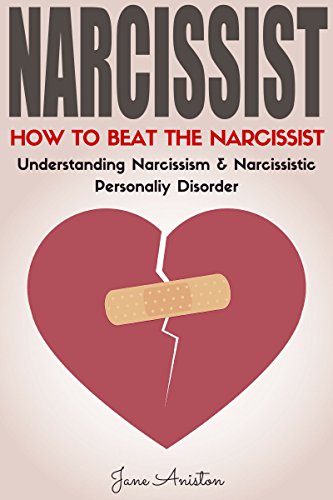
If you have found any manifestations of narcissistic traits in yourself and want to change them, then it will be useful for you to develop the skills of self-reflection, mentalization (understanding mental states), work on the development of emotional intelligence, empathy (for example, discuss with friends the films you have watched, read books in terms of understanding the inner world of the characters, their motivation, etc.). It is very important to learn to analyze what is happening from different positions, without sliding into extreme points, such as, for example, idealization and depreciation - look for alternative explanations. Try to look at situations or actions from different angles, noting the possible positive aspects of seemingly negative events, including during conversations with loved ones.
If your loved one has narcissistic traits, you need to learn how to track the emotional states of both you and your interlocutor. It is necessary to soberly analyze situations of interpersonal communication. For example, learning to recognize imposed guilt requires being able to maintain your boundaries and autonomy of choice. Psychotherapeutic help will be useful in both cases.
For example, learning to recognize imposed guilt requires being able to maintain your boundaries and autonomy of choice. Psychotherapeutic help will be useful in both cases.
Tags: psychology
Training, slander and triangulation: how to deal with toxic people, narcissists and manipulators
The MIF publishing house publishes a book by psychologist and writer Shahida Arabi, which explores the topic of psychological abuse and explains in detail who manipulators are and what to do if they were in your environment. Forbes Life publishes an excerpt from her book Toxic People on some narcissistic tricks
Training
Toxic people respond to your strengths, talents, and happy memories with abuse, disrespect, and expression of frustration. They use what I call training to get you to associate your happiest moments, interests, hobbies and dreams with their cruel and heartless punishment. In psychology, this is known as positive punishment: the addition of adverse circumstances to prevent certain goal-directed behaviors. When you are regularly punished for reaching a goal, you develop a negative reinforcement pattern in which you avoid goals associated with punishment for safety reasons. Like Pavlov's dog, you are gradually taught to be afraid of the things that once made your life happy and fulfilling, while isolating you from friends and family, which leads to your emotional and financial dependence on a toxic person.
They use what I call training to get you to associate your happiest moments, interests, hobbies and dreams with their cruel and heartless punishment. In psychology, this is known as positive punishment: the addition of adverse circumstances to prevent certain goal-directed behaviors. When you are regularly punished for reaching a goal, you develop a negative reinforcement pattern in which you avoid goals associated with punishment for safety reasons. Like Pavlov's dog, you are gradually taught to be afraid of the things that once made your life happy and fulfilling, while isolating you from friends and family, which leads to your emotional and financial dependence on a toxic person.
As soon as the honeymoon is over, this person will both covertly and directly suppress those qualities and traits of you that he once idealized. He will throw you off the pedestal he created and devalue you. It will ruin your holidays, vacations, birthdays, anniversaries and other important dates for you.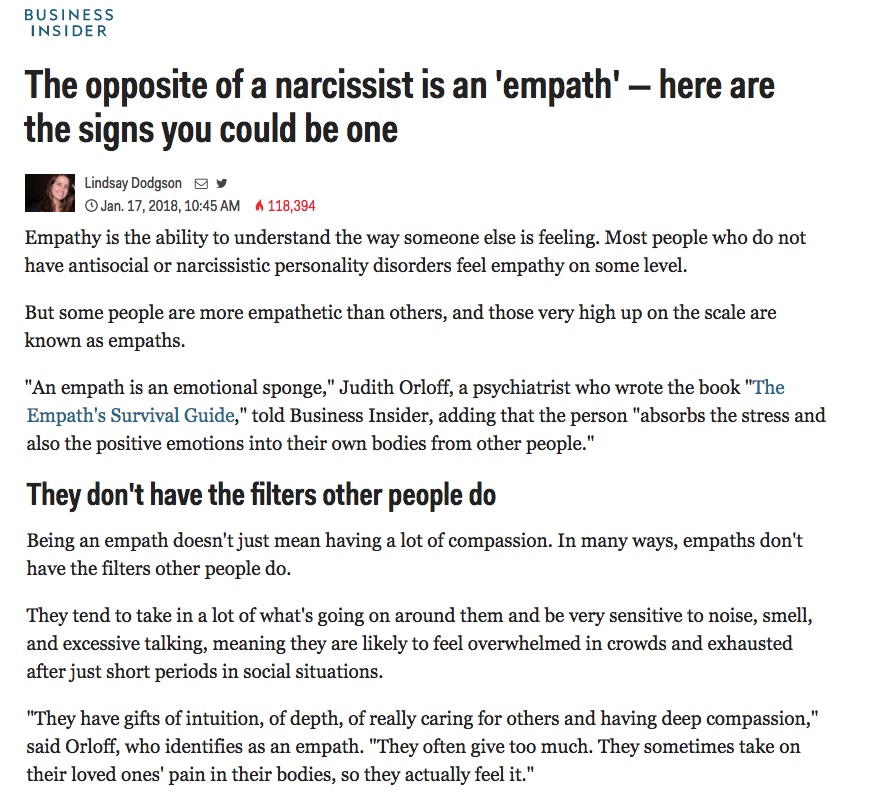
Narcissists train us by suppressing our enthusiasm and frustrating our plans in moments that should be filled with joy, such as the birth of a child or professional success. This prevents what relationship researchers call “capitalization,” the expression of exhilaration from an experience or achievement that enhances its value (Reis et al., 2010). When we cannot share good news with a partner, because we expect punishment or humiliation from him, we lose the pleasure of the supposed triumph.
Training leads us to feel that everything that brings us joy can be reduced to a minimum, radically corrupted or unfairly and finally taken away.
Switching focus from some of your accomplishments or achievements to the narcissist is an indicator of his pathological need to be constantly in the spotlight. See what several victims went through in what should have been the happiest moments of their lives.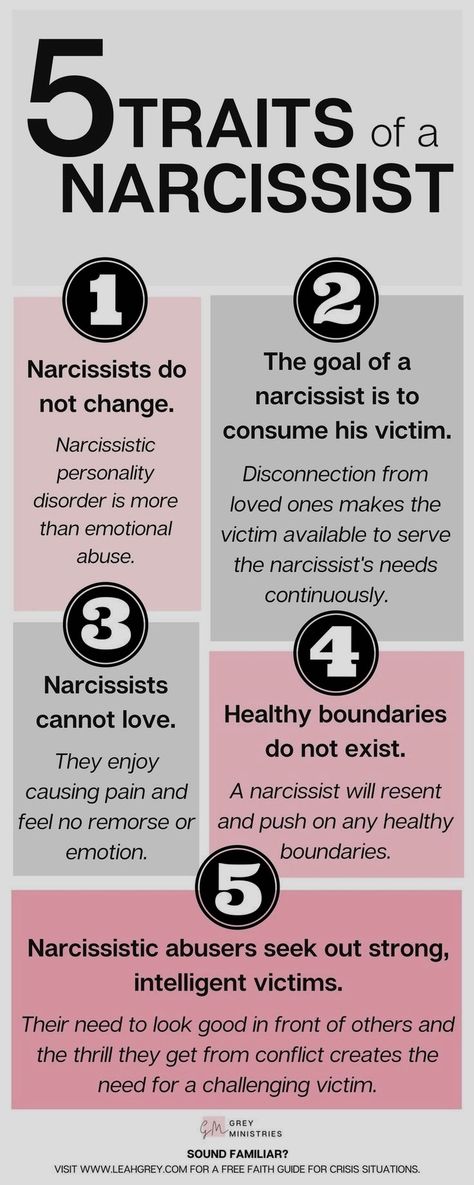
Brooke: “My father sabotaged all the holidays in my life and turned the attention to himself. Graduation at school, college and university, a party before the birth of my child and the ceremony of his christening.
Amanda: “On all holidays, my mother finds a reason to be angry and make us look like terrible children who abandoned her on a special day. She didn't show up for my graduation. She said that the party before the birth of my child is vulgar, and I had to beg for her to come. She threw a terrible tantrum at both of our weddings and threatened to leave in the middle of the event. The list is endless. We are not allowed to be happy and have some intimate moments just for ourselves.”
Megan: “When we got engaged, my stepmother bought herself a two-carat diamond ring because I was very happy with my engagement ring and attracted a lot of attention to myself. I once mentioned that I dream of a green Jeep Grand Cherokee. A week later, she bought herself the car of my dreams.”
A week later, she bought herself the car of my dreams.”
Rachel: “All the holidays and important days in my life are ruined by tantrums or disgusting comments from my husband. Every single one. On Mother's Day he called me terrible names, on Christmas he threw gifts at me because I accidentally opened a box meant for him, he called me names for not wanting to go down a steep cliff at night on a beach in total darkness, and these are just flowers ".
Narcissists are eager to destroy anything that could undermine their control of your life. They are pathologically envious and don't want anything to come between them and their influence on you. After all, if you realize that you can receive approval, respect, and love from other sources, what will keep you in that relationship? A little training on a vicious toxic person will make you tiptoe around and forget about fulfilling your big desires.
This form of manipulation gives us a sense of learned helplessness. It forces us to fight the constant feeling of fear that even when everything in life is going well, a toxic parent, partner, sibling, friend, co-worker, or boss will show up and try to take it away.
It forces us to fight the constant feeling of fear that even when everything in life is going well, a toxic parent, partner, sibling, friend, co-worker, or boss will show up and try to take it away.
Training leads us to feel that everything that brings us joy can be reduced to a minimum, radically corrupted or unfairly and finally taken away.
"I'm afraid of inconveniencing other people": when there really is nothing to be ashamed of
How to stop training without further punishment of the narcissist. Make a list of your past successes, accomplishments, happy moments, and any other sources of joy spoiled by the narcissist. Describe how he harmed you, how it made you feel, and what were the consequences of this sabotage. Then consider how to reconnect with these sources of pleasure and pride without the narcissist intervening. Here are some examples:
- if your narcissistic friend constantly ruined your dream career, think about how to achieve this goal nevertheless;
- If your toxic parent has always ruined your birthdays, get in the habit of inviting only friends and relatives who are happy to share this special day with you;
- do not tell narcissists about upcoming happy events and recent successes;
- Celebrate your accomplishments more often by hosting parties and get-togethers without the presence of the toxic person.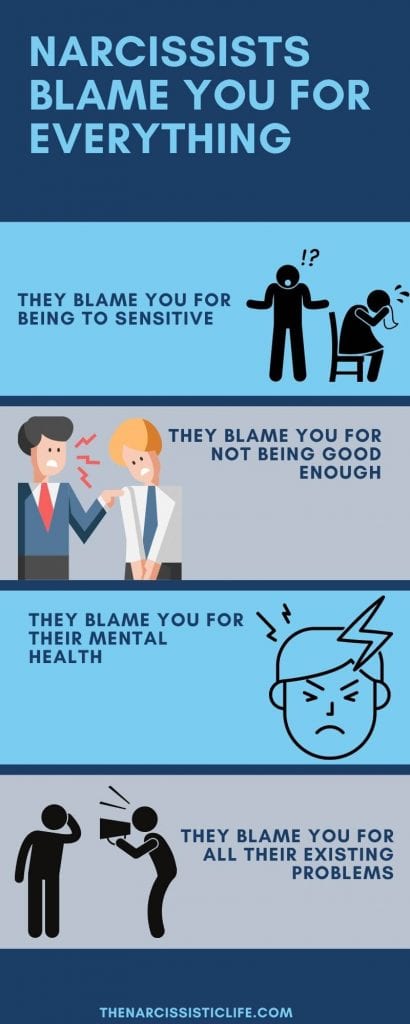
Train yourself to associate a healthy sense of pride and elation with your passions, hobbies, interests, aspirations, and accomplishments that the narcissist has repressed. You deserve all the joy in your accomplishments. Don't let pathological envy steal what is rightfully yours.
Living a Hundred Happy Years: How to Build Healthy Habits in 12 Days
Introspection
Celebrate Your Achievements
Write down three things you are proud of. It may be helpful to note three points in each of the following areas:
- career and study;
—social life;
— self-development;
- raising children / relationships with others;
- sports/health;
— mental health.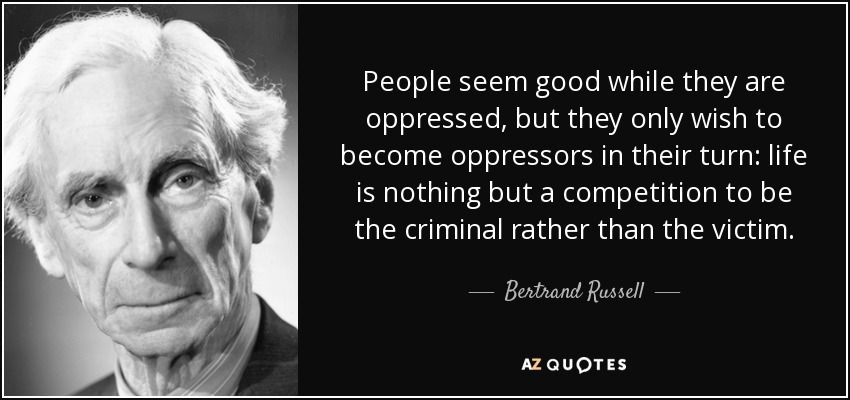
Next to each item, describe how you celebrated this achievement and think of at least one way to celebrate it now and reward yourself.
Slander
Hidden manipulators often spread rumors to destroy your reputation and undermine the trust of others in you. Slander is a preemptive strike designed to harm you, leave you without support in case you still decide to end the relationship and leave the toxic person. Manipulators can gossip behind your back, tell nasty things about you to your or your loved ones, spread rumors that make you the aggressor and them the victim, attribute to you exactly such actions that you can accuse them of. They may spread outright lies, rumors, and false assumptions to cast doubt on your sanity and reputation. Moreover, they may even fabricate false evidence. They will also methodically, covertly and purposefully provoke you in order to use your emotional reactions as an argument for your instability for further psychological abuse.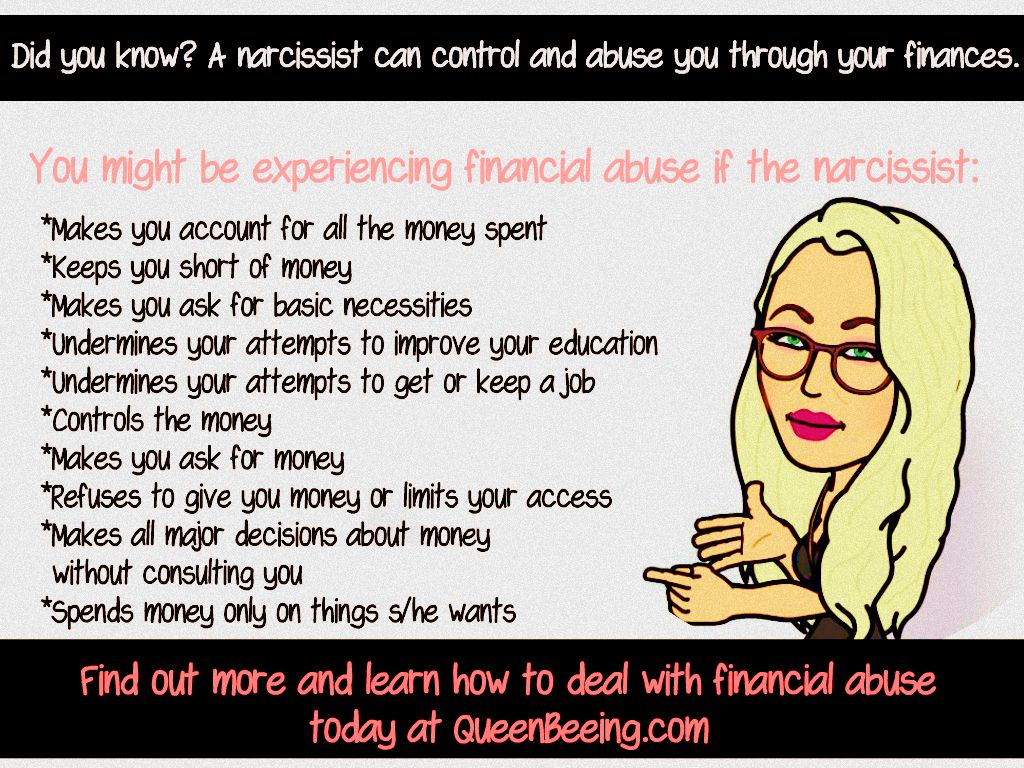
Slander is a pre-emptive strike designed to hurt you, leave you without support in case you still decide to end the relationship and leave the toxic person.
This is a form of gaslighting aimed at controlling your image in the eyes of others so that no one will believe that you are being abused. If toxic people can't control how you see yourself, they start to control how others see you: they pretend to be a martyr and a victim, making you look like a toxic person. Manipulators go out of their way to portray you as a manipulator in order to avoid responsibility for their actions. They may even harass and harass you or someone you know, ostensibly to expose you. However, such exposure is just a way to hide your own destructive behavior by projecting it onto you. Sometimes gossip hardens against each other not even two, but entire groups of people. A victim in a destructive relationship with a narcissist is often unaware of the conversations behind their back for as long as the relationship lasts, but eventually all the secrets are revealed.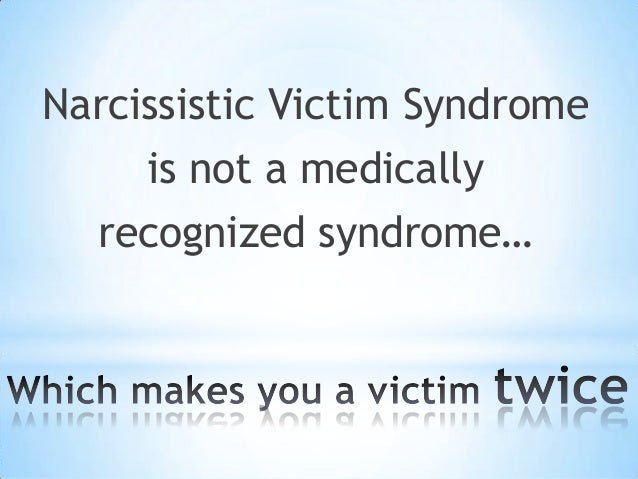
You may experience slander in romantic relationships, at work, among friends, on social networks and among relatives. It often happens that a pathologically envious and sociopathic employee feeds false information about his hardworking colleagues to his boss in order to eliminate a threat on his way up the career ladder. When narcissists achieve great prestige and power, they have the opportunity to destroy even more, harming everyone they consider competitors. As Joe Navarro, a former FBI profiler, writes in his book Dangerous Persons: “Narcissists can rise to high positions in areas of great power or great trust, and commit abuses and even crimes that sometimes have devastating consequences” (Navarro , 2017, 41). The more power a person has, the more devastating can be the slander directed against the victim. This form of manipulation often has very long-term destructive consequences.
Manipulation and deceit: how not to fall into the trap of the simpleton hunter
How to deal with slander
If you are faced with slander and gossip, continue to stick to the truth, and let your honesty and character speak for themselves. If you are unreasonably accused, operate only with facts. The best "revenge" in such a situation is to live your life, reconnect with reliable people and move forward to success. Let go of the people who supported the narcissist. They themselves will understand that they were wrong. Convincing them is not your job. Take it for granted, now you know who your real friends are.
If you are unreasonably accused, operate only with facts. The best "revenge" in such a situation is to live your life, reconnect with reliable people and move forward to success. Let go of the people who supported the narcissist. They themselves will understand that they were wrong. Convincing them is not your job. Take it for granted, now you know who your real friends are.
As difficult as it may be, try not to show emotions in public: narcissists will try to use your reactions against you to make you look inadequate.
Focus on legal actions you can take to combat defamation: Whenever possible, carefully document evidence of abuse that will be needed to file a criminal case. Research the libel laws in your area and, if necessary, enlist the help of an attorney experienced in dealing with conflict personalities.
Build healthy relationships with people who can support you in difficult times. Ideally, this circle should include a psychotherapist working with a traumatic experience, who understands personality disorders, and victims who have experienced such an experience.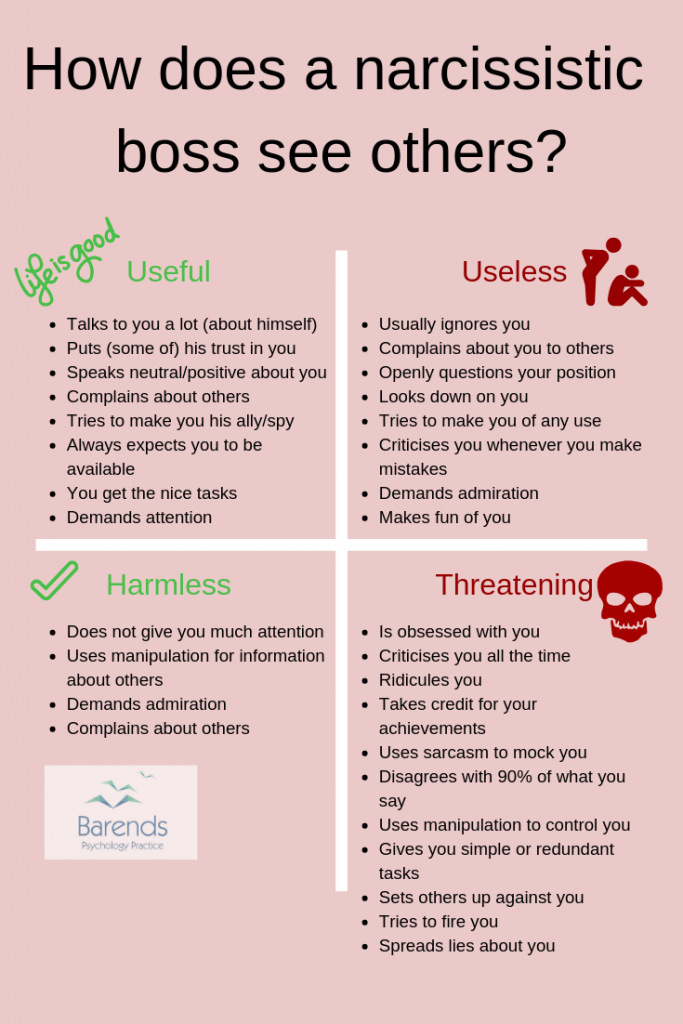 It is necessary to build such relationships with sincere and reliable people who can cover your rear, and not with those who support a toxic person. If you are facing slander, the last thing you want is to be further gaslighted, devalued, or re-traumatized.
It is necessary to build such relationships with sincere and reliable people who can cover your rear, and not with those who support a toxic person. If you are facing slander, the last thing you want is to be further gaslighted, devalued, or re-traumatized.
Some of my readers have asked if it is worth the effort to expose the narcissist to the public eye. As a rule, trying to take down a psychopath alone can be a dangerous undertaking, so I strongly recommend that you put your safety first and consult with a lawyer and mental health professional to carefully analyze your case. Public exposure can have consequences, and an aggressive toxic person may retaliate by accusing you of defamation, even if what you say is true. Do not forget that such people are charming and usually receive the support of society. Benign types of toxic personalities are afraid of exposure and will certainly retreat if such a possibility, psychopaths are unimaginably cruel, and some of them are ready to destroy anyone who tries to expose them. The true nature of predators is ultimately revealed when they betray the people who supported them, so you should not waste your energy on exposing them, unless you have evidence, confidence in your safety and the necessary incentive. But first, make sure you weigh all the pros and cons.
The true nature of predators is ultimately revealed when they betray the people who supported them, so you should not waste your energy on exposing them, unless you have evidence, confidence in your safety and the necessary incentive. But first, make sure you weigh all the pros and cons.
Some believe that the risk far outweighs the need to expose the manipulator, while others believe that exposure can save new potential victims or even unite a group of victims of the same predator and inspire them to work together. It all depends on the circumstances, but in any case, your personal safety should be at the forefront. First of all, focus on restoring your good name, healing, getting social support, and achieving personal goals.
Artful manipulation: how to deal with intolerable people
Introspection. Friend or foe?
Think about the circle of people who support you. Who is included in it? Reveal those who have distanced themselves or turned away from you because of slander - these people have shown their true colors. Note also who stayed by your side. These are your real friends. If your entire support circle has fallen apart, start looking for potential sources to create a new one. Reach out to support groups, domestic violence centers, counseling counselors, and explore the possibilities of social media (eg Meetup.com).
Who is included in it? Reveal those who have distanced themselves or turned away from you because of slander - these people have shown their true colors. Note also who stayed by your side. These are your real friends. If your entire support circle has fallen apart, start looking for potential sources to create a new one. Reach out to support groups, domestic violence centers, counseling counselors, and explore the possibilities of social media (eg Meetup.com).
Triangulation
The inclusion of an outsider's threatening opinion or just a stranger into the relationship dynamic is known as triangulation. This is a common technique for asserting the rightness of a destructive person and devaluing the reactions of his victim. Triangulation can be used in various contexts for the purpose of sabotage and harassment.
In love relationships, triangulation is used not only to control the partner, but also to provoke jealousy.
- It often leads to love triangles in which you feel insecure and unsettled.
- Narcissistic parents use triangulation to pit their children against each other: they make unwarranted comparisons and stir up sibling rivalry.
— The sociopathic leader of a social group may play friends against each other by claiming that one is gossiping about the other, but in this way he controls each member of the group by spreading false information.
- In the workplace, toxic people may use triangulation to misinform their boss about their colleagues in order to prevent them from getting promotions they deserve.
In love relationships, triangulation is used not only to control the partner, but also to provoke jealousy. Malignantly toxic people love to involve strangers, colleagues, ex-partners, friends, and even family members in relationships to make you feel insecure. They also use the opinions of others to support their point of view and gaslight the abuse you are experiencing.
They also use the opinions of others to support their point of view and gaslight the abuse you are experiencing.
The narcissist uses triangulation and creates a "harem" to appear as a highly desirable person, no matter how close to reality. In his book The Art of Seduction, Robert Green encourages seducers to create triangles with friends, former lovers, and current suitors to ignite rivalry and increase their worth. This creates the appearance of competition, and the object focuses on winning the attention and love of a "very desirable" person. As Greene writes: “Few people will find the attraction of a person whom everyone avoids or who is neglected: people circle around those who have already aroused someone's interest. To get the attention of your victims, to make them lust after what you have, create a kind of popularity aura - show that you are wanted and wanted, that you are being chased by crowds of admirers" (Greene, 2004, 195).
Narcissists create love triangles by constantly talking about their ex-partners, people they dated, or those who are "obsessed" with them (later you learn that these are the victims of the narcissist). Active triangulation can be an early warning sign or a harbinger of future manipulations. For example, if on a first date your partner talks endlessly about their exes, their likes or those who sympathize with him, or if he actively flirts with others, take this as a serious red flag and a clear sign of disrespect.
Active triangulation can be an early warning sign or a harbinger of future manipulations. For example, if on a first date your partner talks endlessly about their exes, their likes or those who sympathize with him, or if he actively flirts with others, take this as a serious red flag and a clear sign of disrespect.
Triangulation is a diversionary tactic designed to divert attention from abuse to a false image of a person's desirability. "Harem" serves as social proof of the narcissist's character. If you have a problem with a narcissist, then you must be the problem, or at least you think so. In fact, it just means that people prefer not to notice that the king is naked.
Manipulators use triangulation as part of other abusive tactics—slander and gaslighting—or to obtain narcissistic reinforcement. It makes you doubt yourself: "If Danica agrees with Justin and also thinks that I'm not myself, maybe I'm wrong after all?" The truth is, narcissists are happy to tell you gossip and lies that others have said about you while spreading rumors behind your back.

